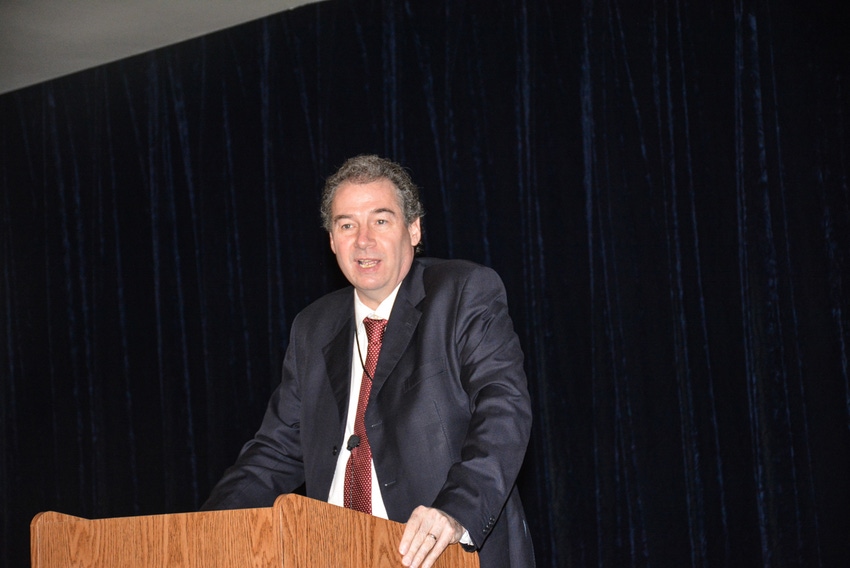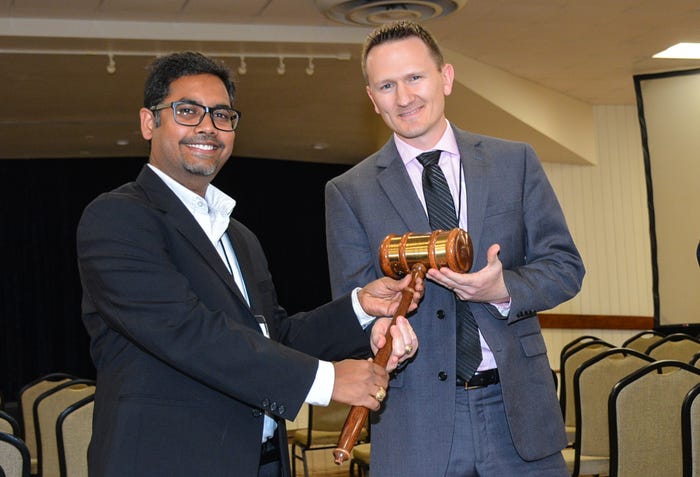December 6, 2018

The vice chancellor of Texas A&M AgriLife and director of the state’s premier agricultural research agency said precision nutrition and responsive agriculture will play key roles in meeting the future health and dietary needs of a quickly expanding Texas population.
Dr. Patrick Stover, director of Texas A&M AgriLife Research, told attendees at the 30th Texas Plant Protection Association Conference in Bryan the U.S. has the best, safest, most abundant food system anywhere in the world.
“In doing that we’ve created gaps,” Stover said. “For the farmer, as production agriculture has made food abundant, profit margins have gotten smaller and there is also more competition such as China. Our farmers are struggling. For the consumer, diet-related chronic diseases have grown to cost the U.S. economy nearly $1 trillion a year. Neither the U.S. government nor the Texas Legislature can afford those medical costs. It’s a food system problem.
“We need to take that $1 trillion in costs and move it back into the food and agriculture space for the benefit of our farmers and the public’s health. We need to reimagine a food system that meets the health and quality-of-life needs of our populations. The solution requires developing the science that connects agriculture, dietary health and food.”
Stover called for creating new foods and agricultural products that benefit farmers, consumers and the Texas economy, an initiative that will be one of many taken on by Texas A&M AgriLife in the next year.
“We need to create additional agricultural products with established human health benefits that will continue to make Texas farmers the best in the country,” he said.
Stover has been touring Texas A&M AgriLife Research and Extension Centers statewide since becoming vice chancellor of agriculture and life sciences in March.
“Texas is strongly committed to agriculture,” he said. “We also know there is tremendous urban growth in our state. We have to make sure as our population grows in urban areas that appreciation grows for agriculture. We are going to do that through better connecting agriculture with all Texas through food and health.”
“As you know, we have 13 research and Extension centers and scientists here in College Station,” he said. “All are responsive to your needs. It’s a partnership as Texas becomes a model for agriculture and solving problems worldwide.”

Dr. Kranthi Mandadi, Texas A&M AgriLife Research scientist at the Texas A&M AgriLife Research and Extension Center in Weslaco, left, has served as Texas Plant Protection Association president for the past year. Mandadi passed the president’s gavel to Dr. Clark Neely, Texas A&M AgriLife Extension Service small grains specialist in College Station, who became the new incoming association president at the 30th annual conference in Bryan.
During the business luncheon, Dr. Clark Neely, Texas A&M AgriLife Extension Service small grains specialist in College Station, became the new incoming association president. Neely succeeds Dr. Kranthi Mandadi, AgriLife Research scientist at the Texas A&M AgriLife Research and Extension Center in Weslaco, who has served as association president for the past year.
About the Author(s)
You May Also Like




